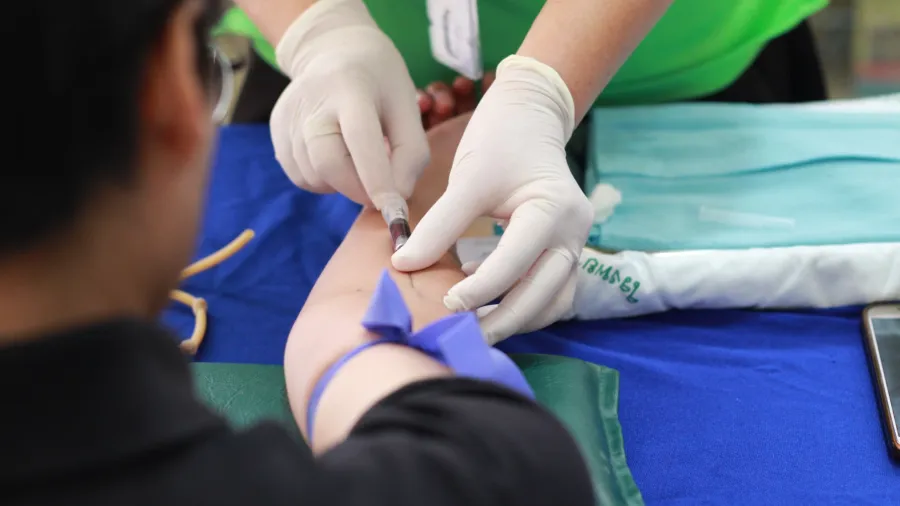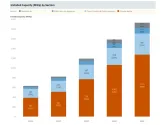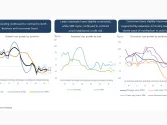
Using offline and online channels to counter misperceptions of hepatitis B – a ‘silent disease’ – in Singapore
Gilead Sciences’ US$1m grant will help NFDD and other community-based organisations across Asia battle public apathy towards liver disease.
Hepatitis B is a liver infection caused by the hepatitis B virus (HBV). An infected individual doesn't experience symptoms until the virus has caused substantial damage to the liver – making this blood-borne disease a silent killer. What makes its silence deafening is the fact that, in Singapore, public knowledge about HBV remains suboptimal. According to an Asian Liver Index Study, only 42% of Singapore's population know that viral hepatitis can cause liver failure.
What is even more alarming is the misperceptions that Singaporeans hold of HBV risk factors and complications. The study showed that 52% of Singaporeans believed that HBV is transmitted through the faecal-oral route, while 66% claimed that they can be infected by eating contaminated food like raw seafood.
To cut through the noise of misperceptions about the virus, a biopharmaceutical firm, Gilead Sciences, invested more than US$1m grant funding to support innovative approaches that raise disease awareness of viral hepatitis, with a focus on HBV, outside of clinical settings. Amongst its grantees benefitting from the fund is the National Foundation of Digestive Diseases (NFDD) in Singapore, a non-profit organisation dedicated to increasing public knowledge of diseases of the digestive system such as the liver, gastrointestinal tract, and pancreas.
READ MORE: Gilead Sciences names its new health leader for Asia markets
Singapore has a ratio of 1 hospital for more than 220,000 Singaporeans
Healthcare Asia spoke to NFDD chairperson Associate Professor George Goh Boon Bee, who said they will use the grant to improve the general population’s awareness about the risks of liver and other gastrointestinal (GI) diseases by revamping the current website.
Their revamped website aims to improve health literacy around HBV among the general public and patient communities. According to a national hepatitis B seroprevalence study done in Singapore, around 4% of the population are carriers of HBV.
“With this grant, it helps to give us a little bit more bandwidth to expand on our present public education efforts. For example, we are thinking of including some content on the website in Mandarin to reach a larger segment of the Singapore population,” said Goh.
“We also hope to develop short snippets of information on liver and GI diseases that are easily accessible, easily retained and relevant to everyone,” said Goh, who is also a senior consultant in the Department of Gastroenterology and Hepatology at the Singapore General Hospital (SGH).
“In this day and age where people tend to be a bit more media and digital savvy, this online platform enables us to improve our outreach,” he added.
A team of GI and liver experts will also help ensure information about liver care posted on the website is accurate to help counter fake information spreading all over the internet.
The NFDD website, Goh pointed out, will guide Singaporeans on how to protect themselves from HBV, the serious implications of HBV, how to monitor it, and the risks of complications from HBV, such as liver cirrhosis.
Battle apathy by tapping other hospitals
Leading liver disease expert Professor Tan Chee Kiat, a senior consultant in the Department of Gastroenterology and Hepatology at SGH and on the grant advisory panel, said the lack of formalised and targeted education about liver care is a roadblock to public awareness about the disease.
“Hepatitis B is a silent disease. Many people who have hepatitis B may still feel well. Additionally, one of its main modes of transmission is perinatal – meaning that babies get the infection from their mothers during childbirth,” Tan, who is also one of the co-authors of the Asian Liver Index study, said.
“When the virus starts to act up or create problems leading to its detection, it is often too late as it may have already led to serious complications such as liver failure and liver cancer,” he added.
To combat apathy towards the disease, Goh said the NFDD will not be alone in the fight as it will tap on hospitals and primary care to promote HBV awareness in Singapore.
“NFDD is a national platform and we leverage on the combined resources and efforts to promote disease awareness from all the different hospitals within Singapore. By doing this, we felt we could provide a stronger message to the general public,” Goh said.
Tan added that COVID-19 will not pose a problem to their goal of raising public awareness of HBV since people worldwide can learn about the disease through the internet.
“COVID-19 itself, to me, is a barrier to in-person social interaction, but it is certainly not to digital interaction so I wouldn't say that COVID-19 is a big obstacle,” he said.
Goh also discussed the loosening of COVID-19 measures and reopening of borders, and what these mean for the NFDD. He said that they will do more face-to-face programmes to address public apathy towards HBV.
In particular, Goh said they plan to roll out physical events for the elderly, as this segment of the population may not be so digital savvy.
“A lot of elderly in Singapore still prefer face to face events and activities where they can actually see someone speaking and delivering a message to them physically. That helps to register a little bit better with these individuals,” said Goh.
“We have plans to continue these in-person events which may also be in the form of hybrid events where it can be part digital and part physical, depending on what the COVID situation allows. It's quite fluid and there is room for flexibility at the moment,” he added.
They hope to launch these programmes by the second half of 2022 to help raise public awareness, as well as provide accurate information about the insidious disease to lessen the cases of “silent” infections.



















 Advertise
Advertise




